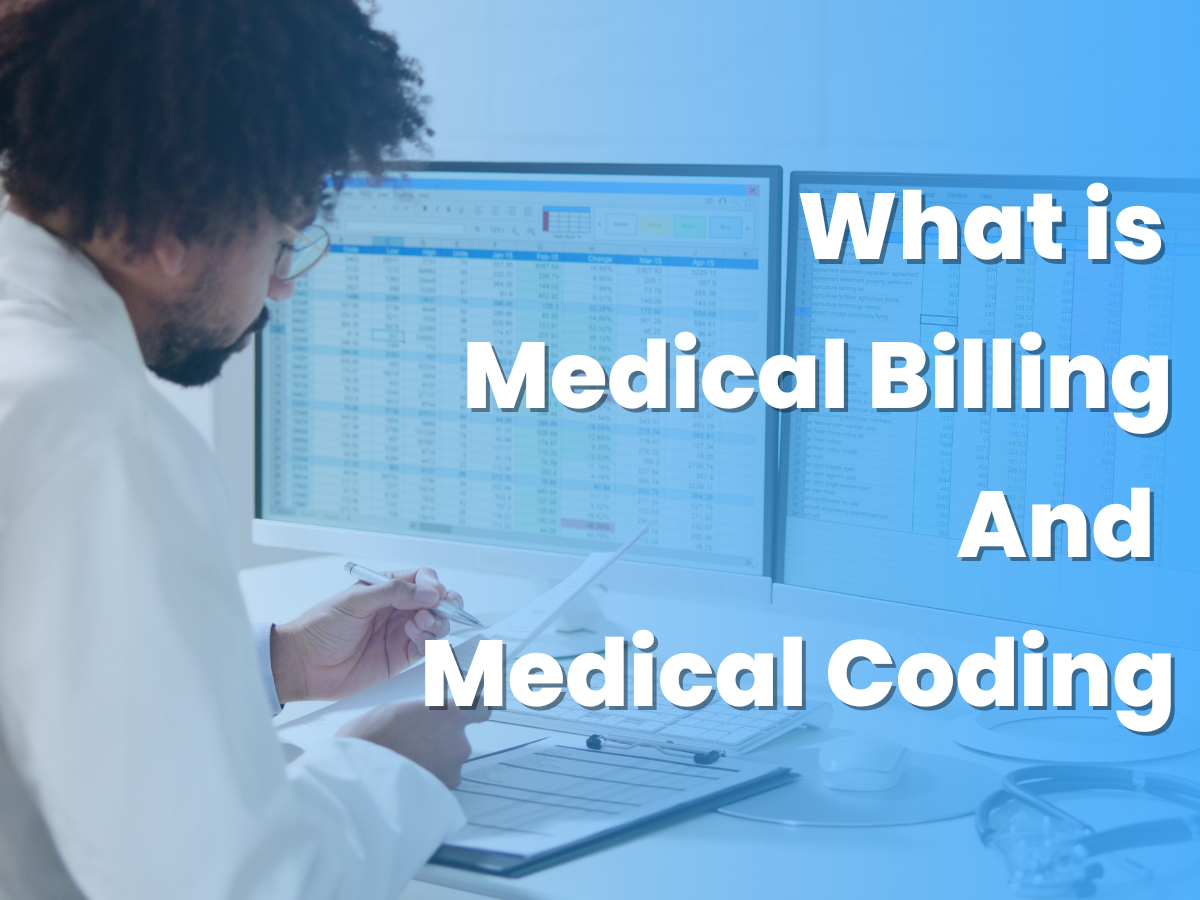Medical Billing and Coding
Introduction to Medical Billing and Coding
Are you intrigued by the inner workings of the healthcare industry? Do you have a keen eye for detail and a passion for organization? If so, then the world of medical billing and coding may be the perfect fit for you. In this blog post, we will delve into the exciting realm of medical billing and coding, exploring its importance in healthcare, steps to becoming a professional in the field, job responsibilities, common challenges faced, technological advancements shaping the industry, salary prospects, tips for success, and more. Join us on this informative journey as we uncover all there is to know about medical billing and coding!
The Importance of Medical Billing and Coding in Healthcare
Medical billing and coding play a crucial role in the healthcare industry, ensuring that medical facilities receive proper reimbursement for services provided. Accuracy in billing is essential for maintaining financial stability within healthcare organizations and preventing revenue loss.
By translating medical procedures, diagnoses, and treatments into universal codes, medical billers and coders help streamline the billing process. They ensure that insurance claims are submitted correctly to insurance companies for timely payment. This not only benefits healthcare providers but also patients by reducing billing errors and discrepancies.
Moreover, accurate coding is vital for tracking patient care data, analyzing healthcare trends, and improving the overall quality of patient care. It helps in identifying areas where operational efficiencies can be enhanced to provide better outcomes for patients.
In essence, medical billing and coding serve as the backbone of the healthcare system by facilitating smooth financial transactions between providers and payers while upholding ethical standards in medical documentation.
Steps to becoming a Medical Biller and Coder
Are you aspiring to kickstart a career in the healthcare industry as a medical biller and coder? Well, you’re on the right track! Here are some essential steps to help you navigate your way into this rewarding field.
Consider obtaining a high school diploma or GED equivalent. This foundational education will set the groundwork for your future studies in medical billing and coding.
Next, enroll in an accredited training program that specializes in medical billing and coding. These programs typically offer courses in anatomy, physiology, medical terminology, and coding systems like ICD-10 and CPT.
After completing your training program, it’s time to pursue certification. The Certified Professional Biller (CPB) or Certified Professional Coder (CPC) credentials are highly valued in the industry.
Gain practical experience through internships or entry-level positions at healthcare facilities. Hands-on experience is invaluable for honing your skills and understanding real-world scenarios.
Continuously stay updated with changes in regulations and technology within the field by attending workshops, seminars, or pursuing further certifications.
Job Responsibilities of a Medical Biller and Coder
As a Medical Biller and Coder, you play a crucial role in the healthcare system. Your main responsibility is to translate medical procedures into universal codes for billing and insurance purposes. Accuracy is key in ensuring that healthcare providers receive proper reimbursement for their services.
You are responsible for reviewing patient records to assign the correct codes based on diagnoses, treatments, and procedures performed. These codes help streamline the billing process and ensure compliance with regulations. Attention to detail is essential to avoid errors that could impact financial reimbursement.
In addition to coding, you also handle insurance claims processing, track payments, and follow up on any outstanding balances. Effective communication skills are important when dealing with patients, healthcare providers, and insurance companies to resolve any billing issues efficiently.
Staying updated on industry changes and regulations is vital as requirements may evolve over time. Continuous education and training are essential to maintain proficiency in this dynamic field of medical billing and coding.
Common Challenges in the Field
Navigating the world of medical billing and coding comes with its fair share of challenges. One common hurdle faced by professionals in this field is the ever-changing landscape of healthcare regulations and insurance policies. Keeping up-to-date with these constant changes can be overwhelming, requiring continuous learning and adaptation.
Another challenge often encountered is dealing with denials and rejections from insurance companies. It can be frustrating to have claims denied, leading to delays in reimbursement and added workload to rectify the issues.
Accuracy is crucial in medical billing and coding, but errors can still occur due to human oversight or system glitches. Detecting and correcting these mistakes promptly is essential to avoid compliance issues and revenue loss.
Additionally, managing a high volume of patient information while ensuring confidentiality adds another layer of complexity to the job. Striking a balance between efficiency and accuracy amidst these challenges requires skill, perseverance, and attention to detail.
Advancements in Technology for Medical Billing and Coding
Advancements in technology have revolutionized the field of medical billing and coding. With the introduction of electronic health records (EHR) systems, processes have become more streamlined and efficient. These systems allow for seamless communication between healthcare providers and insurance companies, reducing errors and speeding up reimbursement.
Artificial intelligence (AI) is also playing a significant role in automating repetitive tasks, such as data entry and coding. AI algorithms can analyze vast amounts of medical data quickly and accurately, helping to ensure proper coding practices are followed.
Telemedicine platforms have further transformed the landscape by enabling remote consultations and treatments. This shift has led to an increased demand for skilled medical billers and coders who can navigate these digital platforms effectively.
Staying current with technological advancements is crucial for professionals in this field to enhance productivity and accuracy in their work processes.
Salary and Job Outlook
When considering a career in medical billing and coding, it’s essential to explore the salary and job outlook for this profession. Medical billers and coders play a crucial role in the healthcare industry, ensuring accurate billing and coding for patient services.
According to the Bureau of Labor Statistics, the median annual wage for medical records and health information technicians was $42,630 as of May 2020. The demand for skilled professionals in this field is expected to grow significantly due to an aging population and advances in technology.
Many medical billers and coders have opportunities to work remotely or on a flexible schedule, providing a good work-life balance. With proper training and certification, individuals can secure stable employment with competitive salaries in various healthcare settings.
It’s important to stay updated on industry trends and regulations to remain competitive in the job market. By continuously improving skills and staying informed about changes in healthcare policies, professionals can enhance their earning potential while contributing effectively to patient care.
Tips for Success in the Field
When it comes to succeeding in the field of medical billing and coding, staying organized is key. Make sure to keep track of important deadlines, codes, and patient information with precision.
Continuously educate yourself on the latest updates and changes in healthcare regulations and coding guidelines. This will help you stay ahead of the curve and provide accurate billing services.
Develop strong communication skills as you’ll often need to work closely with healthcare providers, insurance companies, and patients. Clear communication can help resolve issues efficiently.
Attention to detail is crucial in this profession. Double-checking codes, claims, and patient information can prevent costly errors that could impact reimbursements.
Networking within the industry can also be beneficial. Building relationships with other professionals in healthcare administration can lead to valuable opportunities for growth and advancement in your career.
Conclusion
In the ever-evolving world of healthcare, medical billing and coding play a crucial role in ensuring accuracy, efficiency, and compliance. As technology continues to advance, opportunities for skilled professionals in this field are growing rapidly.
By following the steps outlined to become a certified medical biller and coder, you can embark on a rewarding career with excellent job prospects. Remember that attention to detail, strong communication skills, and adaptability are key qualities for success in this field.
Despite the challenges that may arise, such as dealing with complex insurance regulations or navigating changes in healthcare policies, staying informed and continuously learning will help you overcome obstacles.
With competitive salaries and promising job outlooks, pursuing a career in medical billing and coding can lead to long-term stability and growth opportunities. By utilizing advancements in technology like electronic health records systems or billing software solutions, you can streamline processes and enhance productivity.
By embracing these tips for success and remaining dedicated to your professional development within the field of medical billing and coding, you can achieve your career goals while making valuable contributions to the healthcare industry.










